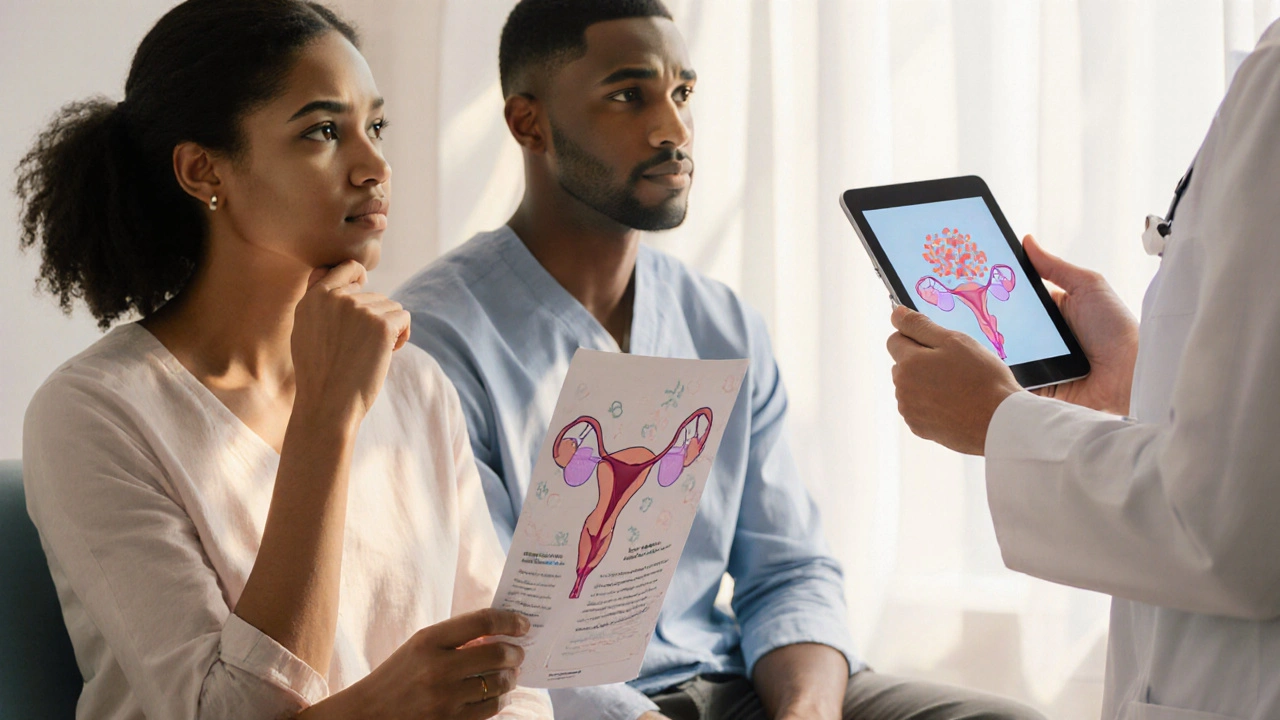Gonorrhea Fertility: How the STD Impacts Reproductive Health
When dealing with gonorrhea fertility, the way a gonorrhea infection can influence a person's ability to conceive. Also known as STD‑related infertility, it links a common bacterial STD to challenges in both male and female reproductive systems. The infection itself is gonorrhea, a sexually transmitted disease caused by the bacterium Neisseria gonorrhoeae, which can invade the urethra, cervix, prostate and even the fallopian tubes. When the bacteria spread, it triggers inflammation that damages the delicate tissues needed for sperm transport or egg fertilization, creating what we call infertility, the reduced or absent ability to conceive after regular, unprotected intercourse. Quick diagnosis and proper antibiotics, medicines that kill or stop the growth of bacteria are the main tools to stop the damage before it becomes permanent.
Key Factors Linking Gonorrhea to Fertility Issues
First, the infection can block the pathways sperm need to travel. In men, untreated gonorrhea often causes epididymitis – swelling of the tube that stores sperm. The swelling can scar the tube, lowering sperm count and motility. In women, the bacteria may ascend to the uterus and fallopian tubes, leading to pelvic inflammatory disease (PID). PID is a major cause of tubal factor infertility because scar tissue can obstruct the tubes, stopping the egg from meeting sperm. Second, the immune response to the bacteria can create antibodies that attack sperm directly, a subtle effect that shows up even after the infection clears. Third, repeated or chronic infections raise the risk of long‑term reproductive problems, especially when partners skip treatment or get reinfected. Finally, lifestyle factors such as smoking, alcohol use, and delayed healthcare can worsen outcomes, making early testing essential.
Knowing these connections helps you take practical steps. If you suspect an STD, get tested right away – many clinics offer rapid tests that give results in minutes. If you’re diagnosed, follow the full course of prescribed antibiotics even if symptoms disappear. Your partner should be treated at the same time to avoid reinfection. After treatment, a follow‑up exam confirms the bacteria are gone and gives your doctor a chance to check for any lingering damage. For couples trying to conceive, a fertility assessment can reveal whether any scarring or antibody issues need specialized care, such as assisted reproductive technologies. Below you’ll find articles that break down the science, outline treatment options, and share real‑world advice for protecting your reproductive future.
Gonorrhea and Fertility: Risks, Diagnosis, and Prevention
- DARREN LLOYD
- 13
Explore how gonorrhea can affect fertility, the complications it causes, how to diagnose and treat it, and steps to protect reproductive health.
READ MORE
